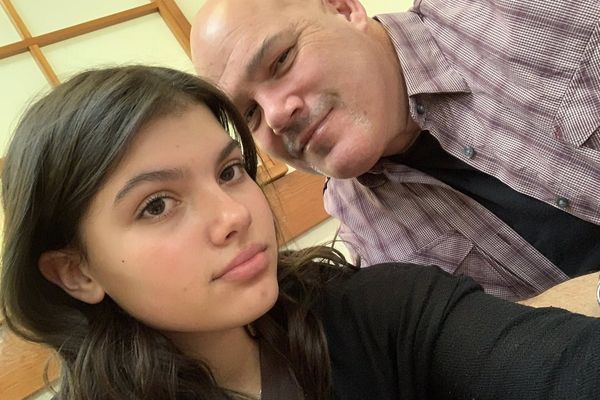
This is what a collapsing NHS looks like. Each metric is worse than the last, every health professional I meet is stuck for words. “This is the worst I’ve ever seen in my career,” says Prof Martin Marshall, head of the Royal College of GPs council. The longtime editor of the Health Service Journal, Alastair McLellan says, “This is the worst – except for next year which will be even worse.”
Never before have 7 million people waited for treatment. Never have so many NHS staff resigned as in recent months, fleeing impossible jobs in understaffed wards, facing a real pay cut. As patient numbers rise, GP numbers fall. Some 3,000 medical school places were cut this year and there have been 8% fewer applicants for nurse training. Dire ambulance response times yield horror stories of heart-attack and stroke victims dying needlessly, as ambulances queue to hand over patients to A&E, because 13,000 beds are blocked with people needing social care.
This omnicrisis seems to be the new normal. News cameras may soon return to wards to capture this latest Covid wave now that 10% of hospital beds in England are filled with Covid patients, an increase of 97% since 20 September. Some catch the virus in hospital while others are admitted due to Covid-19. All need isolating, and staff and other patients need protecting.
Brace for winter; there have been warnings of severe flu. This time, reporters need to spell out why the NHS is so vulnerable after 12 years of flat funding. Beds have been cut and there is no workforce plan. In a burst of candour, the NHS England board received the brutal truth last week from its chief finance officer, Julian Kelly. He warned of £20bn cuts by 2024, forcing the NHS “to completely revisit investment in cancer, mental health, primary care and diagnostic capacity” looking again at “what the NHS can deliver”. Kelly, a former Treasury director general of public spending, explained the government’s refusal to reopen spending will mean existing funds will need to cover pay rises and other inflation costs.
Richard Meddings, the former chairman of TSB Bank, is now chair of NHS England. The government said the banker would “bring an outsider’s eye to the NHS” but if it wanted an austerian, it may be disappointed: Meddings warned that unfunded pay awards and inflation will mean a 10% cut in NHS spending by 2024/25. (Remember that 2024 is election year.)
At the Tory fringes you heard the usual complaints that the NHS is a “bottomless pit” in urgent need of “reform” – code for cuts and private insurance that will cost more for less. They want growth? A failing NHS drags the economy down as 500,000 previously employed people drop out of the workforce due to ill health. Britain is the only developed country where people are leaving the workforce, according to Financial Times number-cruncher John Burn-Murdoch. The number of working-age people in Britain reporting numerous serious health conditions has rocketed by 735,000, according to his analysis. NHS waiting lists are the reason why.
Health secretaries – five in just over four years – should take the Hippocratic oath: first do no harm. The NHS begs politicians to stop imposing targets to impress voters. Thérèse Coffey’s mantra – “I will hold the NHS to account” – won’t stop her party being held to account.
Tories look with a kind of fear and loathing at the NHS, its perennially vulnerable flank. They always leave it in need of rescue after impossible “efficiency savings”, but this time they know they’ve gone too far. Their idiot know-nothings try deflecting blame. Last week, the new health parliamentary private secretary James Sunderland spouted: “The solution is not more money, it’s better managers … People not performing need to be sacked. We need to reinvest money spent on executives and management into the coalface.” The NHS has fewer administrators than comparable health services: would he deploy more doctors and nurses behind desks instead?
Asking a health expert what on earth a health secretary can do, lacking cash and staff, they said bleakly, “Look busy” – and so she does. GPs draw most fire. Coffey has added yet another target to GPs’ existing list of 72, as counted by Jeremy Hunt. She “expects” everyone to see their GP within two weeks; according to the president of the Royal College of GPs, Clare Gerada, fewer GPs held 35m more appointments last year; 85% of patients are seen in two weeks and 44% on the day they ask. But Coffey busies herself subjecting CEOs of the 15 lowest scoring hospitals to regular “Cobra-style” inquisitions.
Coffey is intent on blaming the NHS for the backwash of ill-health caused by rising deprivation. Women in poor areas of England die younger than in most OECD countries and poverty has contributed to a million life-threatening asthma attacks in the UK. The state of the NHS always reflects society’s health: this government has cut the real value of benefits in seven of the past 10 years.
More money is an essential stopgap, but the NHS staffing crisis will take years to fix. It’s no surprise that temping agencies are making record profits; they cost the NHS £2.5bn last year. The government has shunned Jeremy Hunt’s call for a long-term workforce strategy. Labour’s Wes Streeting has pledged a 10-year workforce plan, doubling medical school places, nursing and health visitor training. But no incoming Labour administration can fix the NHS overnight: after years of under-training, staff can’t be magicked out of thin air.
The nurses, who have lost 10% in pay since 2010, are balloting for a strike: junior doctors were paid 26% less in real terms this year than in 2008. Other health workers will ballot next. The public that clapped and painted rainbows will back striking health workers, even if state-shrinkers grind their teeth at voters’ everlasting love for the NHS. Polling shows people are a lot less satisfied with the health service, but if Tories hope running the NHS down breaks that emotional bond, it hasn’t happened. Nor are more people paying for private insurance. Although the number of people paying for one-off private operations from their savings has soared, the number of insured people using private hospitals fell by 16% in 2021.
In her conference speech, Coffey had the effrontery to claim the NHS originator was a Tory baronet, Sir Henry Willink, the wartime health minister involved in the Beveridge report; she says it was he “who conceived the NHS”. My thanks to Roy Lilley, health commentator extraordinare, for showing that Willink in fact opposed nationalising hospitals as he believed it would “destroy so much in this country that we value” (his party vehemently resisted the NHS). Willink cut 12% of medical school training and helped to cause an acute doctor shortage. His later confession that this was a “misjudgment” is something not yet heard from George Osborne and David Cameron, though the NHS will suffer their “misjudgments” for years to come.
Polly Toynbee is a Guardian columnist







